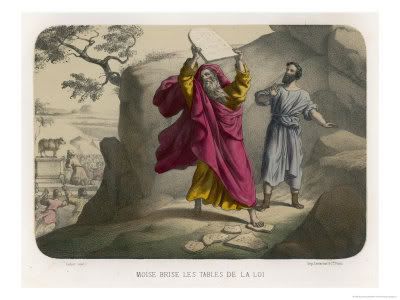
Finally, I think we have to outline, at least, a discussion on authorship and video games.
5. The problem of the identity of the artist: player or developer?
Film studies is well known for the famous debate usually referred to as the “auteur debate.” Put very briefly, the central question was “Does (or should) a film have an author?”
The reason to ask the question with respect to film is that most of the time, there are a lot of people involved in the making of a single film. The two sides of the auteur debate were the people who thought it was a good thing to spread authorship around (they were the Hollywood types) and the people who thought it was better to have films controlled by a single vision (they were above all the French filmmakers of the 50’s and 60’s) as much as possible.
The old auteur debate has nothing on the problem of authorship (or, if you will, “artistship”) in video games, because instead of just debating whether Ken Levine did (or should) have complete control over, and should get all the credit for, Bioshock, there arises in the case of video games the question of whether the player has a role in the creation of the art.
The foundation of the debate remains the same, though—the notion, espoused by Grey in the comments to my original post, that true beauty (or artistry, or profundity, or whatever else you like to find in your aesthetic experiences) can arise only when a single composer (let’s use that word instead of “author” and “artist”) has the opportunity to communicate his ideas to his audience through the medium of a work of creative production (call it “art,” if you want). If the audience is somehow able to change the composition of the work, according to this model, the composer’s ideas may not be communicated as they should be, and true beauty may not arise.
I find that notion to be an interesting fiction—a fiction that can be very helpful both for a composer and for an audience from time to time. I don’t think there can be any doubt that great works of art have emerged from it.
But I would maintain very strongly that it is a fiction for all that. Composers have decisive effects on the interpretation of their works, but audience members have even more decisive effects, because they’re the ones who get to say what it meant to them and to their communities. (There are theoretical ways to talk about this topic, above all the century-old idea of the “intentional fallacy,” but there’s no need to bring them in to understand the matter.)
And when we contemplate much more complex, and much livelier, models of composition like ancient epic and video game, I think we see that trying to make the composer a controller of ultimate meaning, and to base one’s standard of beauty and profundity around that control, is unlikely to produce art that takes advantages of those models’ unique affordances. It seems to me, that is, that trying to argue that the best aesthetic experiences to be had in games come about through a conventional idea of authorship makes games into (weak?) imitations of written forms like novel.
Here’s another place where I strongly believe a comparison with ancient forms like epic and tragedy can be really helpful. Particpatory art can probably be forced to produce the same kind of deep meaning to be found in non-particpatory art, but I’m of the opinion that it realizes its potential more greatly, and does more for us and our civilization, when composers embrace the opportunity to allow players to participate in the creation of the art.
I think, actually, that that’s what Ken Levine did in Bioshock, because the moment of having to kill Andrew Ryan makes sense only in contrast to the interactivity the player has been allowed to enjoy elsewhere in the game, which in turn creates (in my opinion) a deep meaning that exists between the individual player’s individual choices and the composer’s control.
To make an analogy back to ancient epic one more time, Ken Levine's contribution is mostly like the pre-existing, immutable (though in actual fact slowly-changing-over-time) mythic story, while the player is mostly like the bard (and also like the audience, but we’ll talk about that some time down the road). The analogy is not exact, and that's one of the reasons I find it so exciting, because it means there's a lot of work still to be done. Game developers clearly get to do a lot of the work of the bard as well, in creating the game world and in defining certain crucial apsects of the interaction. But it’s in the interaction itself that I think some of the most profund (and the less profound) meanings of ancient epic arose, like the (non) Choice of Achilles, and will arise also in video games.
Is this the only way for epic, or games, to achieve true beauty? Of course not. It’s a pretty cool way, in my opinion, though.
